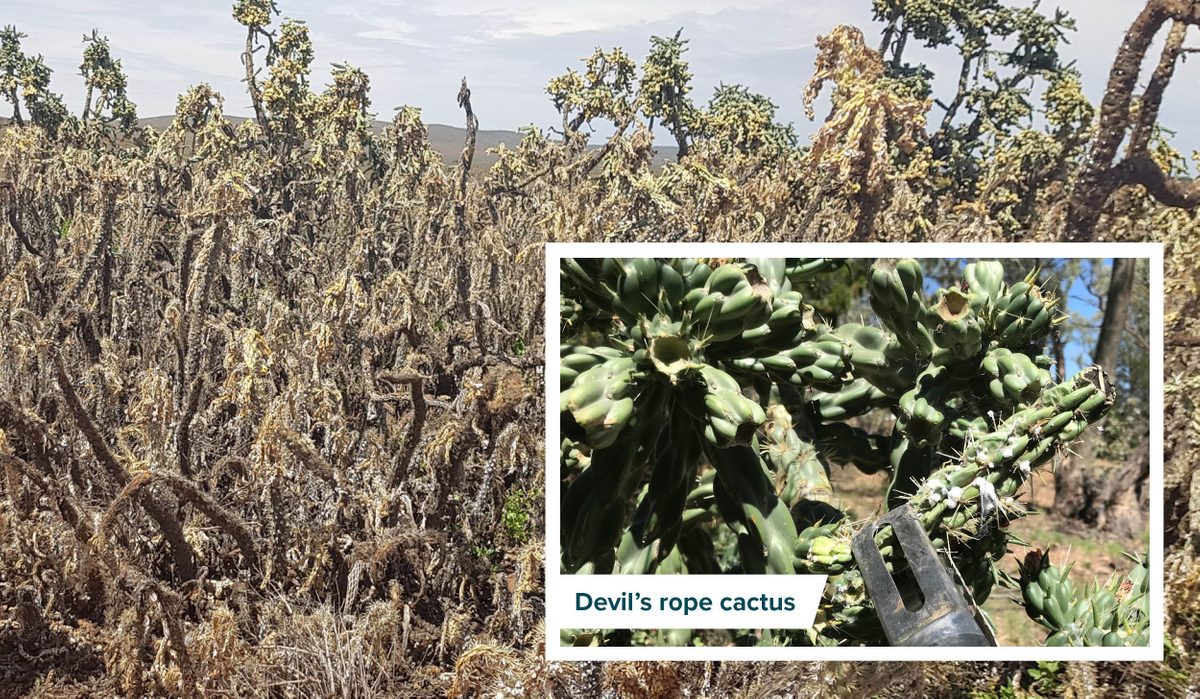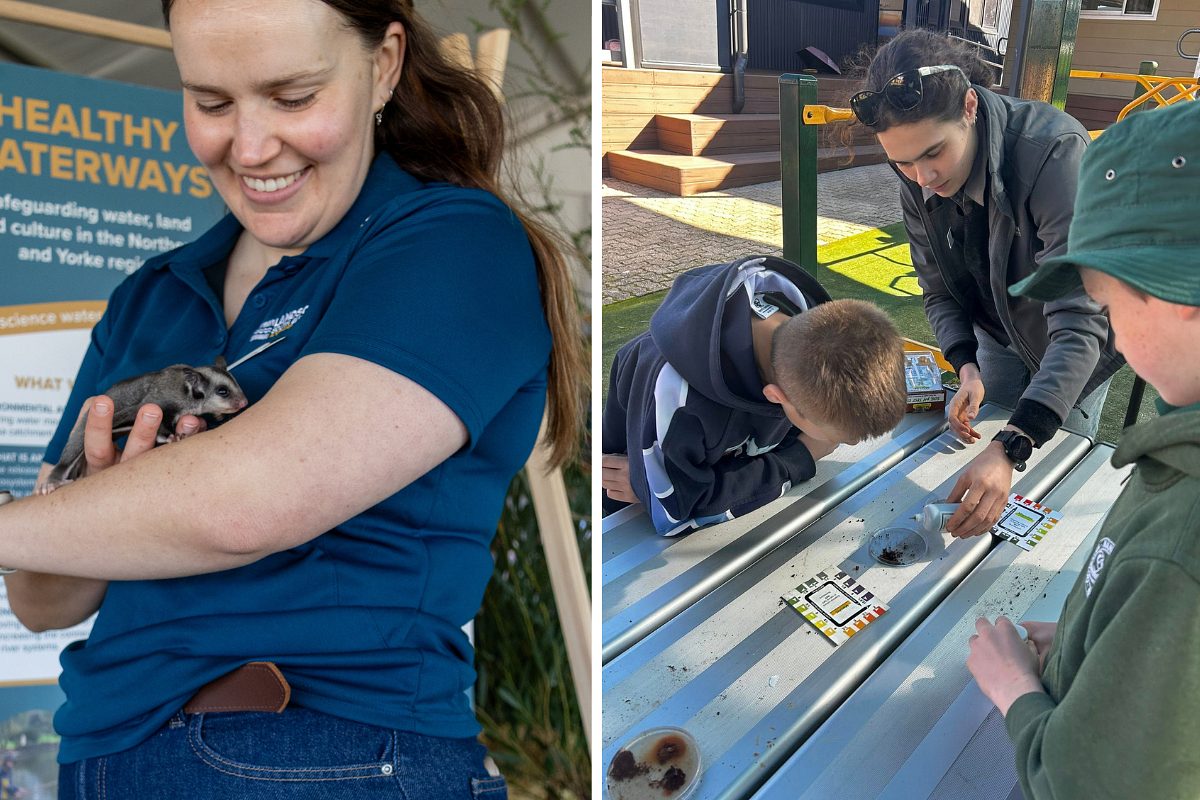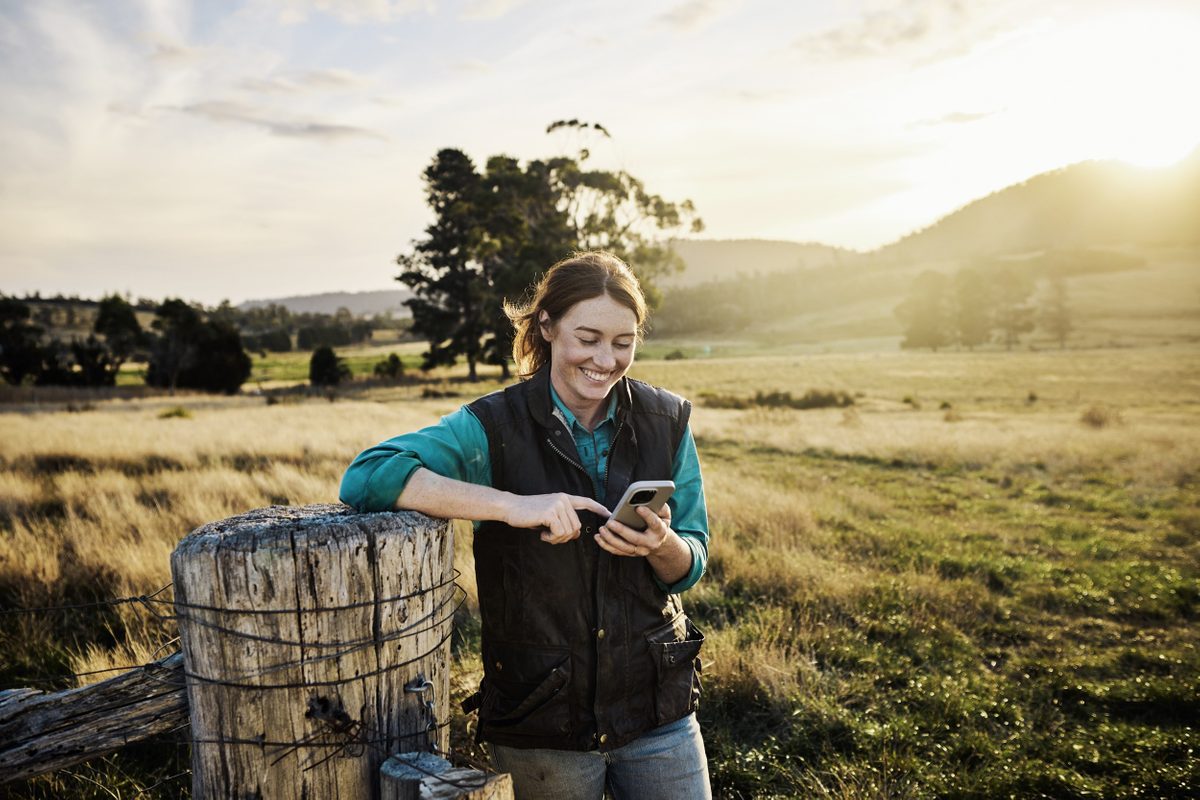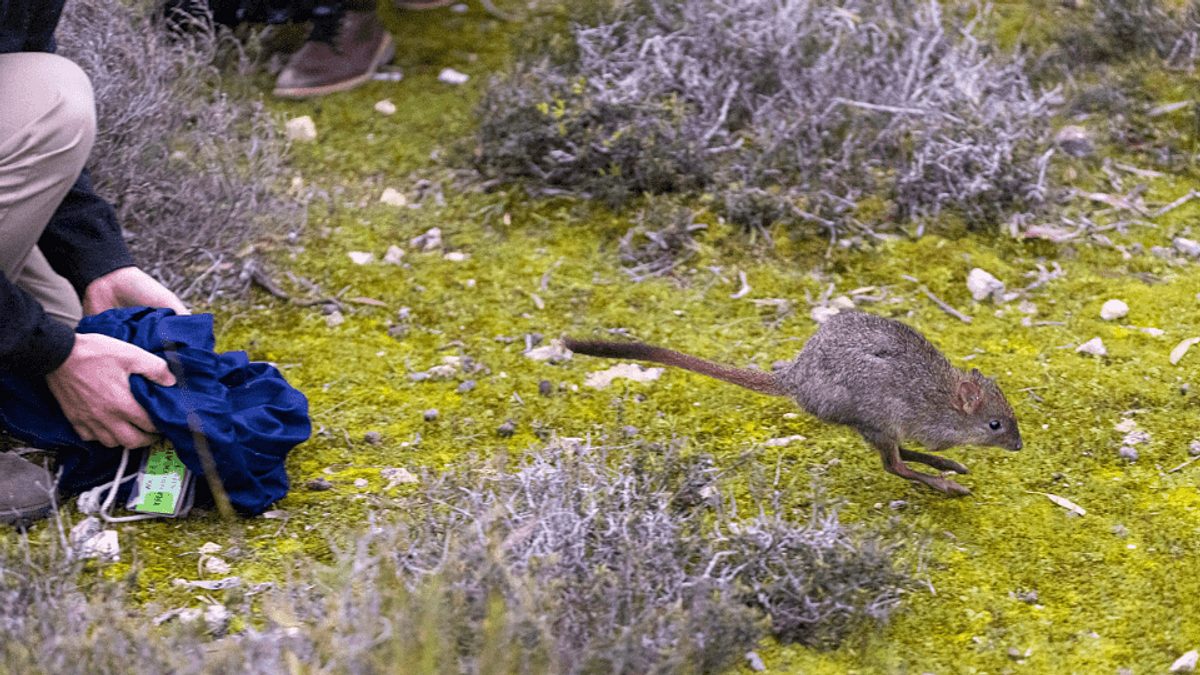Scale insect plays the devil with declared cactus
The tiny scale insect Cochineal is proving a big problem for the declared weed Devil’s rope cactus in the southern Flinders region.
As part of an integrated weed control program, the Northern and Yorke Landscape Board has used the biological method of releasing host-specific Cochineal insects on large cactus infestations.
“We’ve had great success using this little insect on a weed that was widespread across the southern Flinders,” said Northern and Yorke Landscape Board Officer Alexia Catford.
“After three years, Cochineal has helped to reduce this pest plant’s spread by either severely compromising the health of cactus plants, or in some cases, destroying the plant completely.”

Opuntioid cacti are declared weeds that require control by land managers to prevent negative impacts on the environment and primary industries. Devil’s rope cactus (Cylindropuntia imbricata) is a very thorny species known for its rope-like appearance. When left to form dense infestations, it reduces land use, pastures and stock-carrying capacity and also smothers native species.
A host-specific insect, Cochineal is only effective on specific cactus species. In the Northern and Yorke region there are four strains of Cochineal used to control five cactus species, which is done by collecting segments of a Cochineal-infected cactus and manually transferring them to targeted plants. Dactylopius tomentosus (imbricata biotype) is the host-specific Cochineal strain for Devil’s rope cactus.
Cochineal feeds on sap, effectively sucking the cactus dry until it becomes exhausted and dies. The insect has a 55-day breeding cycle, producing 2000 offspring each cycle. It is an effective control method where terrain is difficult to access with traditional spray packs and vehicles or where there are large infestations.
“We are able to supply the four strains of Cochineal to land managers, councils and community groups who need support to reduce the spread of Devil’s rope cactus,” said Ms Catford.
“It also helps us maintain Cochineal numbers, as each infected cactus becomes an in-situ nursery for collecting Cochineal and releasing it elsewhere. Each nursery has a limited lifespan due to the insect’s effectiveness, so we’re keen to hear from the community about new cactus sites.”
As Cochineal is dormant during winter, now is an ideal time for insect transfers. To identify the cactus species on your property, seek advice about Cochineal control options and source the insects, contact a Landscape Officer at the Northern and Yorke Landscape Board on 8841 3444 or email ny.landscapeboard@sa.gov.au.


